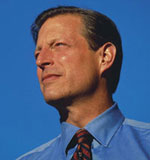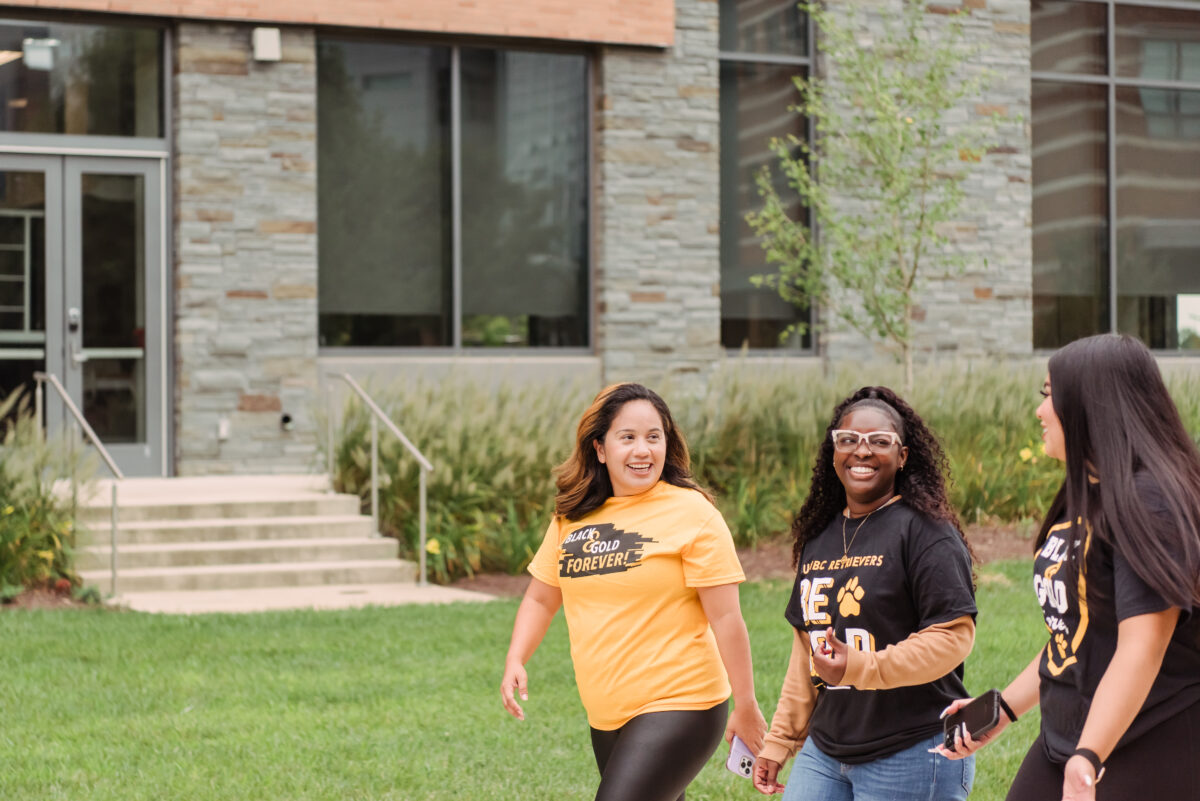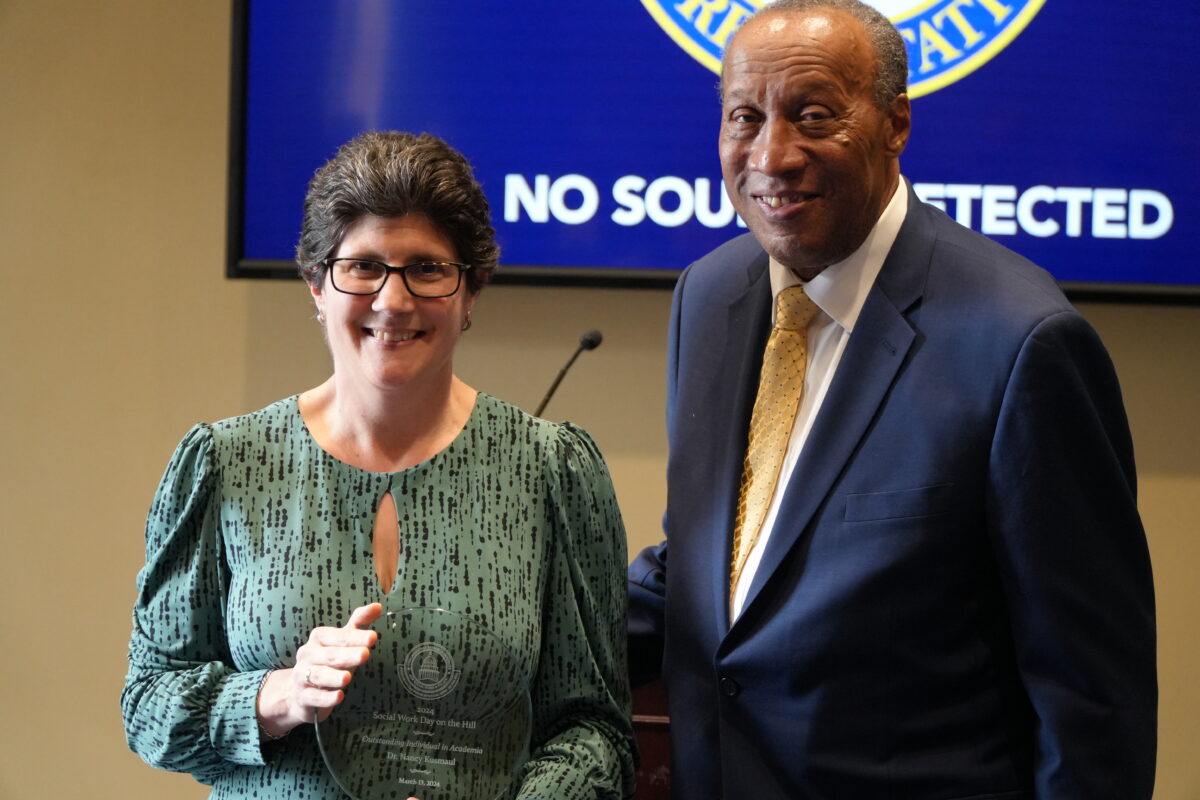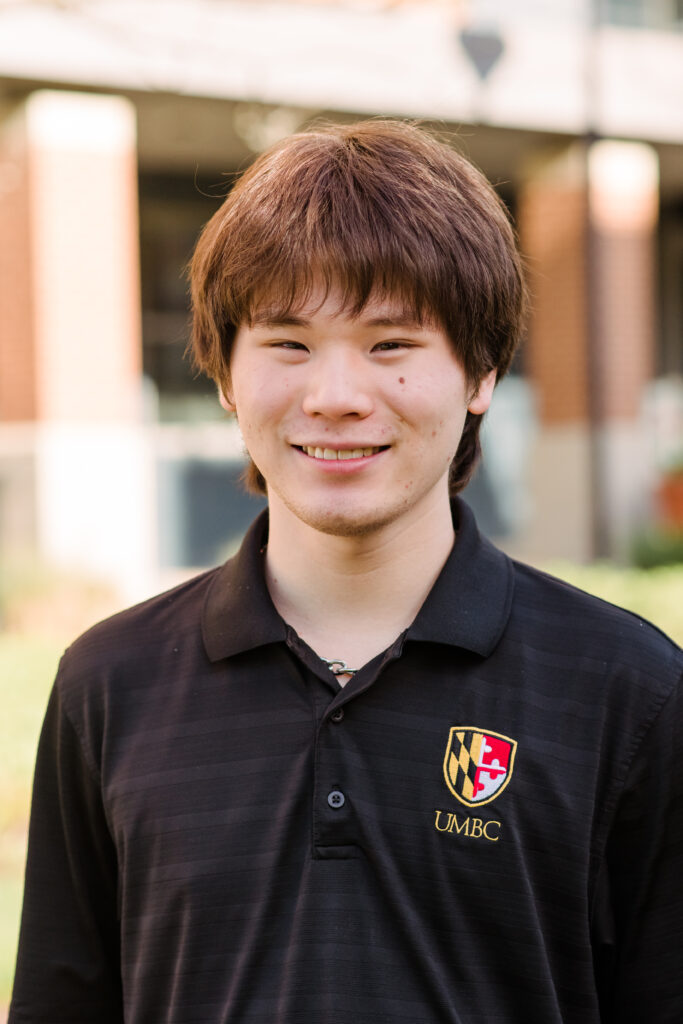UMBC Presents Roundtable on Environmental Issues, Hosts Former VP Al Gore
This year’s Mosaic Roundtable –“If now what then, if then what now?”– is a timely opportunity to showcase UMBC’s faculty and student research on the environment, an area of emerging focus for the university. “If now ,” a multidisciplinary discussion of former Vice President Al Gore’s Oscar-winning film, “An Inconvenient Truth,” is a prelude to Gore’s upcoming lecture at UMBC on May 8, part of The Maryland Forum lecture series.
The Mosaic Roundtable, sponsored by UMBC’s Interdisciplinary Studies Program, on Monday, April 9 will be held from 4 to 6 p.m. on the 7th Floor of the Albin O. Kuhn Library & Gallery. The week prior to the event, the Interdisciplinary Studies Council of Majors and the Campus Climate Initiative will host free film screenings of “An Inconvenient Truth.” Founded in 2002, the Mosaic Roundtable is an annual discussion of controversial, timely issues. More information about Mosaic and the screenings is available online.
Roundtable participants are:
Scott Farrow, Chair
Department of Economics
Scott Farrow’s current research focuses on risk management and micro-economic performance while his teaching focuses on benefit-cost analysis and the economics of risk management. His work related to global climate change includes academic articles on methods to quantify the precautionary principle and economic approaches to sustainability as well as his authorship of Making the Environment Count on which then-Senator Gore held hearings.
He served twice in the Executive Office of the President, in the Department of the Interior, and carried out domestic and international consulting work for Dames & Moore, Inc. Consulting clients and funding sources have included: the US Environmental Protection Agency, ExxonMobil, Audubon Society of Western Pennsylvania, American Chemistry Council, Harvard Institute for International Development (for the US Agency for International Development) and the Organization for Economic Cooperation and Development.
Jeff Halverson, Associate Director
Joint Center for Earth Systems Technology
Associate Professor
Department of Geography and Environmental Systems
Jeffrey Halverson’s present research and teaching interests focus on the climatology and severe storms of the Mid Atlantic region, including nor’easters, severe thunderstorms and tropical cyclones undergoing extra-tropical transition. Prior to UMBC, Jeffrey Halverson investigated severe storms for NASA’s Goddard Space Flight Center. He also worked at NASA Headquarters, where he helped manage NASA’s Tropical Cloud Systems and Processes (TCSP) and NASA African Monsoon Multidisciplinary Activities (NAMMA) experiments to study the birth and intensification of hurricanes. He has extensive field experience investigating hurricanes, serving both as an Instrument Scientist for NASA’s ER-2 high altitude research aircraft and as Mission Scientist on NASA’s DC-8 research aircraft.
Halverson writes a regular column for Weatherwise magazine. Most recently, he wrote the scientific content for author Stefan Bechtel’s new release, Roar of the Heavens (Citadel Press), which tells the story of the catastrophic Hurricane Camille flash flood in Nelson County, Virginia.
Robert Neff, Assistant Professor
Department of Geography and Environmental Systems
Robert Neff has been studying human dimensions of global climate change for the past 10 years. He has published findings of the Mid-Atlantic Regional Assessment, which was part of the national assessment of the impacts of climate change in the late 1990s, and more recently has published findings of the Human-Environment Regional Observatories (HERO) project, which was funded by a five-year grant from NSF to enhance infrastructure for studying vulnerability to climate change and variations.
Neff wrote his master’s thesis on the economics of a gasoline tax and his Ph.D. dissertation on greenhouse-gas emissions from transportation in urban places. He is currently working with the Baltimore Ecosystem Study, an NSF-funded Long-Term Ecological Research (LTER) study site to analyze energy-consumption patterns in multiple urban places. Neff is the chair of the Human Dimensions of Global Change Specialty Group of the Association of American Geographers (AAG), the national disciplinary organization for geographers in the United States.
Ellen Handler Spitz, Honors College Professor of Visual Arts
Honors College
Department of Visual Arts
Ellen Handler Spitz teaches interdisciplinary seminars in the arts and humanities. She lectures internationally and is the author of numerous articles and five books: Art and Psyche, Image and Insight, Museums of the Mind, Inside Picture Books, and, most recently, The Brightening Glance.
Spitz was recently named a 2007 summer fellow at the Erikson Institute for Education and Research. She held fellowships at the Getty Center for the History of Art and the Humanities, the Bunting Institute (now the Radcliffe Institute for Advanced Study), the Center for Advanced Study in the Behavioral Sciences at Stanford, the Camargo Institute in France and the Center for Children and Childhood Studies at Rutgers.
Moncie Wright, President
Campus Climate Initiative
Moncie Wright is the first student to present at a Mosaic event. A senior environmental science major, she is the president of the Campus Climate Initiative, an organization devoted to reducing UMBC’s impact on global warming
As a student at the Community College of Baltimore County (CCBC), Wright was mentored by Chris Fox, head of the CCBC Environment Project, who has studied global warming for 20 years. After receiving her A.A. in Environmental Science Technology, Wright transferred to UMBC in fall 2005. While attending the 4th Annual N.E. Climate Conference in 2006, she learned how hundreds of schools across the country were combating global warming on their campuses and working with administrators to reduce their campuses’ impacts on climate change. When she returned to UMBC, Wright started the Campus Climate Initiative and did independent research under the guidance of geography and environmental systems professor Chris Swan on an invasive species.
The Campus Climate Initiative is completing a greenhouse gas emissions inventory and the group also applied for an EPA grant to investigate student attitudes and perceptions toward energy efficiency. In addition, the Campus Climate Initiative is performing energy efficiency research.
Wright is also a member of the Campus Sustainability Research Group and treasurer for the Geography and Environmental Systems Council of Majors.
(4/2/07)
© 2006-07 University of Maryland, Baltimore County 1000 Hilltop Circle, Baltimore, MD 21250 410-455-1000




